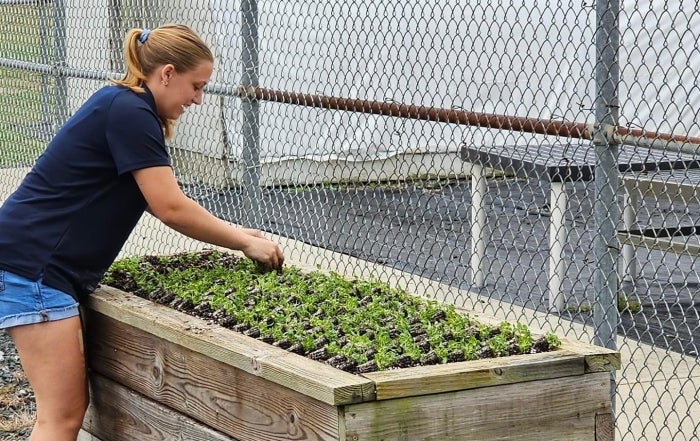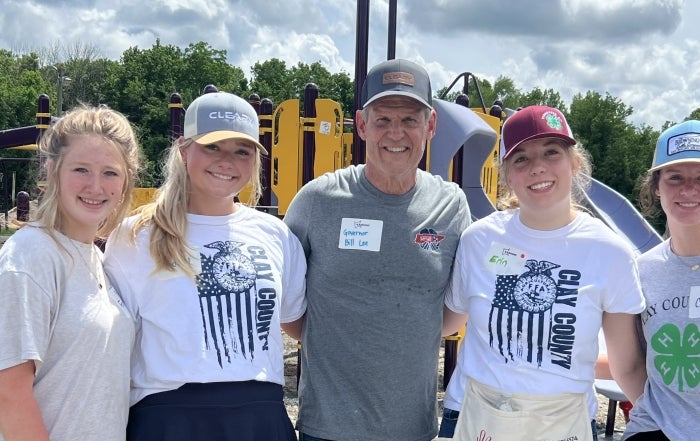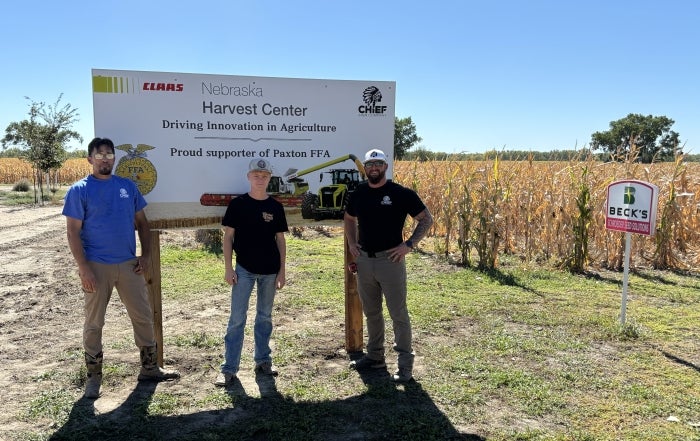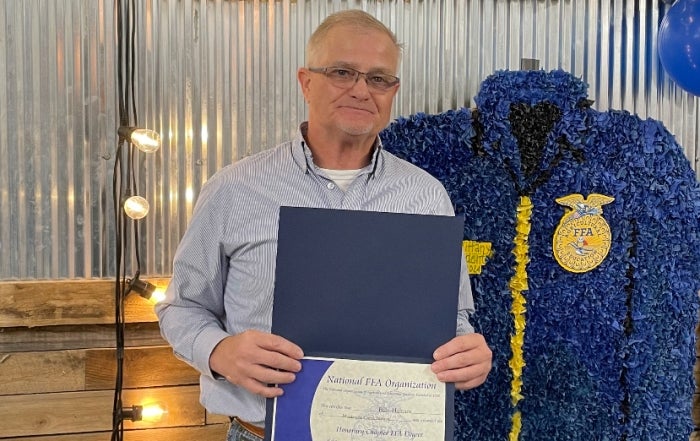
In 2016, Tractor Supply Company launched its new FFA paper emblem program, Grants for Growing. This is a program designed to impact local communities through chapters. Tractor Supply Company retail stores and local FFA Chapters partner during FFA Week to raise funds through the sale of paper emblems.
We encourage chapters to participate in the stores during the fundraising period, as this presence helps drive the sales of the paper emblems.
Additional fundraising opportunities, approved by store management, may also be available.
Examples of store activities:
- Greet customers
- Help pack at the register and take items to customer’s cars
- Hold a bake sale
- Host a petting zoo
- Host a car wash
- Hold up signs promoting FFA Week and Grants for Growing program to passing motorists (honk if you believe in agriculture)
- Set up a booth – where members can promote agriculture and FFA.
- Tell customers about FFA.
What exactly is Grants for Growing?
Grants for Growing is a competitive grant process where chapters submit an application outlining a new or existing school agricultural project whose total budget does not exceed $5,000 or whose project budget is between $500 – $5,000. The grants are to be used to further or boost current agricultural education programs/projects or to build new ones. The project should be sustaining, meaning not just a one year event. The program/project should live on to benefit future FFA members. These chapter grants will allow for a greater impact in local communities and enhance chapter learning experiences.
How do I apply?
Grants for Growing 2018 grant applications opens Jan. 10, 2018. View the application requirements.
2018 GRANTS FOR GROWING RECIPIENTS

The fundraising period will take place Feb. 16-25, 2018. During that time chapters are encouraged to volunteer a few hours and engage customers to help drive the sales of the paper emblems. Chapters are not required to participate in a store. All chapters are encouraged to apply even if there is no Tractor Supply store with in close proximity. Promotion of the event with social media, posters, broadcast and print may earn extra points toward the grant.
APPLICATION
A completed application is required to be considered for one of the competitive grants. The application process is simple and asks the following:
- Program/Project title?
- Describe, in detail, the project the chapter grant will fund?
- How will this grant help to further your chapter’s agricultural education program?
- Detailed Budget (review budget guidelines below)
- Can the Tractor Supply Company name be incorporated in your project?
Any chapter engaging at their local Tractor Supply Store and/or promoting their participation will have the opportunity to complete a post fundraising Engagement form. The Engagement form will consist of the following areas:
In-store Hours: How many students and hours were contributed and what chapter members did while at store (this may include your other fundraisers)
Local Promotion: Provide information about how the program was promoted. This may include: social marketing, flyers, posters, email, broadcast, print, etc.
Additional consideration may be given to those chapters that complete the optional engagement form.
Evaluation Scale
Chapter applications will be evaluated using 3 main areas:
- Sustainability of the program
- Why is this program important to furthering your schools agricultural education program
- Budget (how will funds be used)
Grant Award Process
Advisors will be notified, via e-mail, of the grant decision.
The local Tractor Supply Company store, nearest winning chapters, will also be notified. Grant checks and other presentation materials will be sent directly to the local Tractor Supply Company store. The advisor and store manager are encouraged to work together for a presentation of the grant check.
The winner’s packet shipped to the store will include the following:
- The grant check
- Photo opportunity check for presentation (larger check)
- Press release
Grant Follow-up Process
Advisors will receive an e-mail, approximately eight months after the grant check is issued, encouraging them to log onto their FFA.org account and complete a grant status update.
BUDGET
Budget Guidelines
- Be specific and quantifiable for line items
- Ensure that items listed in your budget are discussed in your grant narratives
- Ensure the TOTAL amount equals a whole dollar amount. CORRECT = 100.00; INCORRECT = $99.68
Funding Guidelines
Allowable Expense Examples
- Transportation to and from service sites
- Educational outreach materials
- Vegetation – Ex: fruits, vegetables, trees, seeds, etc.
- Other expendable materials – Ex: chicks, feed, mulch, etc.
- Small Equipment Purchases – Ex: tiller, tools, etc.
- Portable storage
Non-Allowable Expense Examples
- Stipends or scholarships to students or the chapter
- Indirect costs (cost of administering the grant funds)
- Food items/drives
- Travel to or from state or national convention
- T-shirts and giveaways
- FFA dress
Categories to Include
Non-Expendable Equipment Costs
- Items having a useful life of more than one year. Examples include small tools, tiller, etc.
Materials & Supplies
- Expendable items having a useful life up to one year. Examples include educational outreach materials, seeds, soil, etc.
Marketing & Communication
- Any materials used for advertising or publicizing the project. Examples include brochures, flyers, etc.
Travel
- Costs to travel to sites related to project outcomes. Examples include travel to service sites, presentations, etc.
Miscellaneous
- Any other anticipated costs that are not included above. Examples include, equipment rental, animal medicines, animal feed, etc.
RELATED STORIES
Going for a Guinness World Record
This year, Kaitlyn Tyler, a Parkside CTE FFA member from Maryland, is aiming for a record-breaking accomplishment.
Engaging With FFA Members
Planning events like Earth Week with FFA strengthens communities, supports education, and promotes environmental stewardship through collaborative efforts.
Sowed Seeds Become a Thriving SAE
Nebraska FFA member Landon Drews repurposed school land into a productive dryland corn test plot, then shared his work with others.
Doing More for Tribal Youth
Alumnus Billy Haltom grew the Muscogee (Creek) Nation Agriculture Youth Program to support young agriculturists and Oklahoma FFA members.





